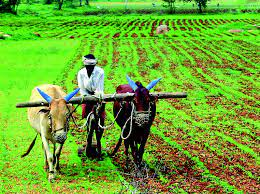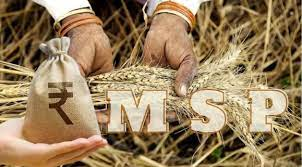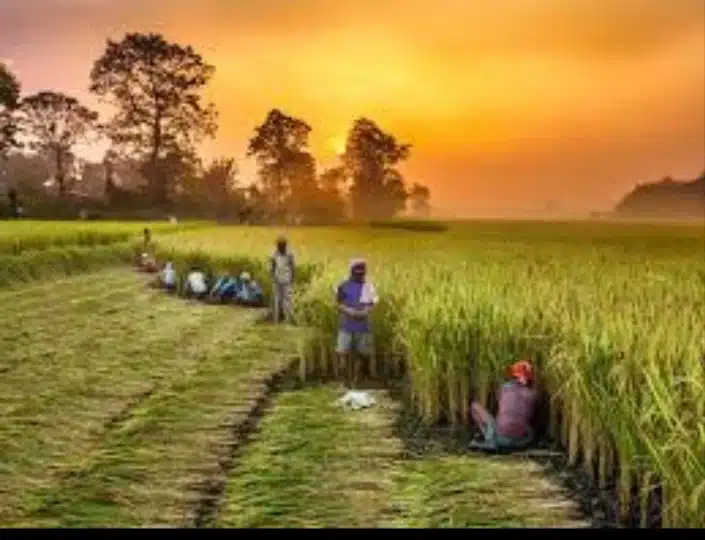
The cabinet committee on economic affairs has raised the minimum support price (MSP) of 6 crops for this financial year, MSP of wheat was increased by ₹110, gram by ₹105, barley by ₹105, lentil by ₹500, Rapeseed and Mustard by ₹400 rupees and Safflower by ₹209 as announced by the Union minister Anurag Thakur in a press meet
The Minimum Support Price is a type of market intervention by the government of India to protect the agricultural producers from any sudden change in farm prices due to any unavoidable circumstances. Every year these prices are declared by the government for certain crops as per the recommendations of Committee on Agricultural Costs and Products (CACP). These were introduced to protect the poor farmers from a rapid fall in prices during an extensive production season and to procure foodgrains for public distribution.If market price of a commodity falls below the announced MSP due to huge production or market in variabilities the government purchases the entire commodity at the announced minimum price.
The commission after a detailed study comes up with the MSP and it depends on various factors like the cost of production , trends in market prices, demand and supply, effect of cost of living, effect on industries, effect on the economy as a whole etc After a micro level study the CACP comes up with the effective market prices every year.

The Union budget in 2018-19 announced fixing of MSP at a level of at least 1.5 times the All India weighted average cost of production aiming to provide reasonably fair remuneration to the farmers and protecting them from any undue pressure of the market.The maximum rate of return has been 104 percent for rapeseed & mustard, which is followed by 100 percent for wheat, 85 per cent for lentil ; 66 per cent for gram; 60 per cent for barley; and 50 per cent for safflower.
The cultivators are the most affected by any changes in season or the market. They produce foodgrains but also suffer from different challenges from climatic to personal and survival being the major concern. India being an agro economy the government has to address the farmers distress.
Different crops are grown in different times of the year on the basis of which they have been classified as Kharif and Rabi crops Rabi crops are sown in October to December and harvested in summers while the Kharif crops are sown between April and May.

Since the country has two sowing seasons which varies from state to state and the harvesting of crops also depends on variety. A harvested crop which is sown in kharif (summer) season may reach in the market even before October. The MSP of kharif crops is applicable from 1 September of every year. Similarly the MSP of Rabi crops are provided before their harvest season.
With the objective of Atmanirbhar Bharat in mind the government aims at increasing the production of pulses and oilseeds. The MSP support and procurement with the strategies
of High yielding varieties of seeds, improving the effective use of fertilizers and pesticides are all directed towards the vision of achieving the goal of a sustainable India.












